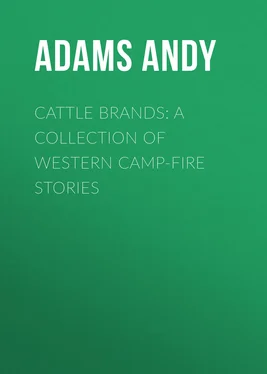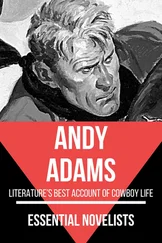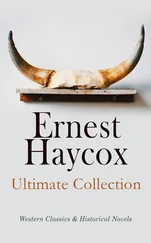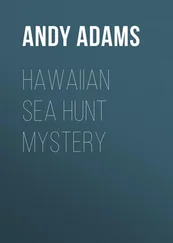Andy Adams - Cattle Brands - A Collection of Western Camp-Fire Stories
Здесь есть возможность читать онлайн «Andy Adams - Cattle Brands - A Collection of Western Camp-Fire Stories» — ознакомительный отрывок электронной книги совершенно бесплатно, а после прочтения отрывка купить полную версию. В некоторых случаях можно слушать аудио, скачать через торрент в формате fb2 и присутствует краткое содержание. Жанр: foreign_prose, foreign_antique, на английском языке. Описание произведения, (предисловие) а так же отзывы посетителей доступны на портале библиотеки ЛибКат.
- Название:Cattle Brands: A Collection of Western Camp-Fire Stories
- Автор:
- Жанр:
- Год:неизвестен
- ISBN:нет данных
- Рейтинг книги:4 / 5. Голосов: 1
-
Избранное:Добавить в избранное
- Отзывы:
-
Ваша оценка:
- 80
- 1
- 2
- 3
- 4
- 5
Cattle Brands: A Collection of Western Camp-Fire Stories: краткое содержание, описание и аннотация
Предлагаем к чтению аннотацию, описание, краткое содержание или предисловие (зависит от того, что написал сам автор книги «Cattle Brands: A Collection of Western Camp-Fire Stories»). Если вы не нашли необходимую информацию о книге — напишите в комментариях, мы постараемся отыскать её.
Cattle Brands: A Collection of Western Camp-Fire Stories — читать онлайн ознакомительный отрывок
Ниже представлен текст книги, разбитый по страницам. Система сохранения места последней прочитанной страницы, позволяет с удобством читать онлайн бесплатно книгу «Cattle Brands: A Collection of Western Camp-Fire Stories», без необходимости каждый раз заново искать на чём Вы остановились. Поставьте закладку, и сможете в любой момент перейти на страницу, на которой закончили чтение.
Интервал:
Закладка:
The announcement of the candidacy of Mr. Louis Seigerman in the next week's paper (by aid of the accompanying fiver which went with the "copy") encouraged the editor, that others might follow, to write a short, favorable editorial. The article spoke of Mr. Seigerman as a leading citizen, who would fill the office with credit to himself and the community. The trio read this short editorial to Louie daily for the first week. All three were now putting their feet under the table with great regularity, and doing justice to the vintage on invitation. The back room became a private office for the central committee of four. They were able political managers. The campaign was beginning to be active, but no adverse reports were allowed to reach the candidate's ears. He actually had no opposition, so the reports came in to the central committee.
It was even necessary to send out Arab Ab to points on the railroad to get the sentiments of this and that community, which were always favorable. Funds for these trips were forced on them by the candidate. The thought of presenting a board bill to such devoted friends never entered mine host's mind. Thus several months passed.
The warm sun and green blades of grass suggested springtime. The boys had played the rôle as long as they cared to. It had served the purpose that was intended. But they must not hurt the feelings of Seigerman, or let the cause of their zeal become known to their benefactor and candidate for sheriff. One day report came in of some defection and a rival candidate in the eastern part of the county. All hands volunteered to go out. Funds were furnished, which the central committee assured their host would be refunded whenever they could get in touch with headquarters, or could see some prominent cowman.
At the end of a week Mr. Seigerman received a letter. The excuses offered at the rich man's feast were discounted by pressing orders. One had gone to Texas to receive a herd of cattle, instead of a few oxen, one had been summoned to Kansas City, one to Ohio. The letter concluded with the assurance that Mr. Seigerman need have no fear but that he would be the next sheriff.
The same night that the letter was received by mine host, this tale was retold at a cow-camp in the Strip by the trio. The hard winter was over.
At the county convention in May, Seigerman's name was presented. On each of three ballots he received one lone vote. When the news reached the boys in the Strip, they dubbed this one vote "Seigerman's Per Cent," meaning the worst of anything, and that expression became a byword on the range, from Brownsville, Texas, to the Milk River in Montana.
III
"BAD MEDICINE"
The evening before the Cherokee Strip was thrown open for settlement, a number of old timers met in the little town of Hennessey, Oklahoma.
On the next day the Strip would pass from us and our employers, the cowmen. Some of the boys had spent from five to fifteen years on this range. But we realized that we had come to the parting of the ways.
This was not the first time that the government had taken a hand in cattle matters. Some of us in former days had moved cattle at the command of negro soldiers, with wintry winds howling an accompaniment.
The cowman was never a government favorite. If the Indian wards of the nation had a few million acres of idle land, "Let it lie idle," said the guardian. Some of these civilized tribes maintained a fine system of public schools from the rental of unoccupied lands. Nations, like men, revive the fable of the dog and the ox. But the guardian was supreme—the cowman went. This was not unexpected to most of us. Still, this country was a home to us. It mattered little if our names were on the pay-roll or not, it clothed and fed us.
We were seated around a table in the rear of a saloon talking of the morrow. The place was run by a former cowboy. It therefore became a rendezvous for the craft. Most of us had made up our minds to quit cattle for good and take claims.
"Before I take a claim," said Tom Roll, "I'll go to Minnesota and peon myself to some Swede farmer for my keep the balance of my life. Making hay and plowing fire guards the last few years have given me all the taste of farming that I want. I'm going to Montana in the spring."
"Why don't you go this winter? Is your underwear too light?" asked Ace Gee. "Now, I'm going to make a farewell play," continued Ace. "I'm going to take a claim, and before I file on it, sell my rights, go back to old Van Zandt County, Texas, this winter, rear up my feet, and tell it to them scarey. That's where all my folks live."
"Well, for a winter's stake," chimed in Joe Box, "Ace's scheme is all right. We can get five hundred dollars out of a claim for simply staking it, and we know some good ones. That sized roll ought to winter a man with modest tastes."
"You didn't know that I just came from Montana, did you, Tom?" asked Ace. "I can tell you more about that country than you want to know. I've been up the trail this year; delivered our cattle on the Yellowstone, where the outfit I worked for has a northern range. When I remember this summer's work, I sometimes think that I will burn my saddle and never turn or look a cow in the face again, nor ride anything but a plow mule and that bareback.
"The people I was working for have a range in Tom Green County, Texas, and another one in Montana. They send their young steers north to mature—good idea, too!—but they are not cowmen like the ones we know. They made their money in the East in a patent medicine—got scads of it, too. But that's no argument that they know anything about a cow. They have a board of directors—it is one of those cattle companies. Looks like they started in the cattle business to give their income a healthy outlet from the medicine branch. They operate on similar principles as those soap factory people did here in the Strip a few years ago. About the time they learn the business they go broke and retire.
"Our boss this summer was some relation to the wife of some of the medicine people Down East. As they had no use for him back there, they sent him out to the ranch, where he would be useful.
"We started north with the grass. Had thirty-three hundred head of twos and threes, with a fair string of saddle stock. They run the same brand on both ranges—the broken arrow. You never saw a cow-boss have so much trouble; a married woman wasn't a circumstance to him, fretting and sweating continually. This was his first trip over the trail, but the boys were a big improvement on the boss, as we had a good outfit of men along. My idea of a good cow-boss is a man that doesn't boss any; just hires a first-class outfit of men, and then there is no bossing to do.
"We had to keep well to the west getting out of Texas; kept to the west of Buffalo Gap. From there to Tepee City is a dry, barren country. To get water for a herd the size of ours was some trouble. This new medicine man got badly worried several times. He used his draft book freely, buying water for the cattle while crossing this stretch of desert; the natives all through there considered him the softest snap they had met in years. Several times we were without water for the stock two whole days. That makes cattle hard to hold at night. They want to get up and prowl—it makes them feverish, and then's when they are ripe for a stampede. We had several bobles crossing that strip of country; nothing bad, just jump and run a mile or so, and then mill until daylight. Then our boss would get great action on himself and ride a horse until the animal would give out—sick, he called it. After the first little run we had, it took him half the next day to count them; then he couldn't believe his own figures.
"A Val Verde County lad who counted with him said they were all right—not a hoof shy. But the medicine man's opinion was the reverse. At this the Val Verde boy got on the prod slightly, and expressed himself, saying, 'Why don't you have two of the other boys count them? You can't come within a hundred of me, or yourself either, for that matter. I can pick out two men, and if they differ five head, it'll be a surprise to me. The way the boys have brought the cattle by us, any man that can't count this herd and not have his own figures differ more than a hundred had better quit riding, get himself some sandals, and a job herding sheep. Let me give you this pointer: if you are not anxious to have last night's fun over again, you'd better quit counting and get this herd full of grass and water before night, or you will be cattle shy as sure as hell's hot.'
Читать дальшеИнтервал:
Закладка:
Похожие книги на «Cattle Brands: A Collection of Western Camp-Fire Stories»
Представляем Вашему вниманию похожие книги на «Cattle Brands: A Collection of Western Camp-Fire Stories» списком для выбора. Мы отобрали схожую по названию и смыслу литературу в надежде предоставить читателям больше вариантов отыскать новые, интересные, ещё непрочитанные произведения.
Обсуждение, отзывы о книге «Cattle Brands: A Collection of Western Camp-Fire Stories» и просто собственные мнения читателей. Оставьте ваши комментарии, напишите, что Вы думаете о произведении, его смысле или главных героях. Укажите что конкретно понравилось, а что нет, и почему Вы так считаете.












